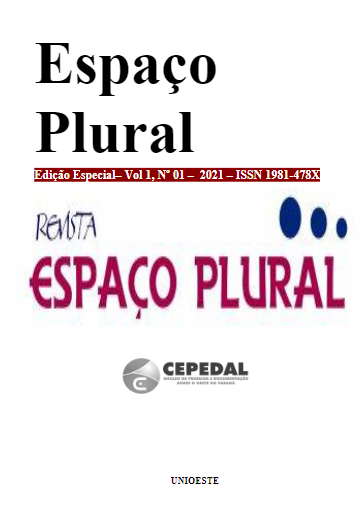The indispensability of reading literary classics as opposed to the spontaneity of consuming adapted literary Works: a controversy
Palabras clave:
Literary reading; adaptation of literary classics; teaching literature.Resumen
We problematized the use of adaptations of literary classics of unreliable quality in school contexts, replacing the original texts. We discussed the role of school in the formation of the individual and the need to avoid emptying the school curriculum and, therefore, pedagogical work. We analyzed data produced from a form/questionnaire answered by Portuguese language teachers from the municipal and state public schools in Espírito Santo. We found that the use of adaptations is a reality among the majority of interviewees and this use is supported by apparently more attractive versions presented to students and by simplifying the language. We defend that the recurrence of using adaptations of the classics contributes to the emptying of literary content whether it is used without clear criteria and intentional, organized and systematic planning.
Citas
COSTA, Larissa Quachio. O lema “aprender a aprender” no ensino de Literatura: precisas implicações no processo de formação humana. Revista HistedBR On-line (Campinas). v.17, n.3 [73], p.940-967, jul.-set. 2017.
DALVI, Maria Amélia. Criatividade na BNCC e em pesquisas atinentes à educação literária: indagações e desvelamentos. Desenredo (UPF), v. 15, p. 283-300, 2019.
DELLA FONTE, Sandra Soares; MARSIGLIA, Ana Carolina Galvão. A educação escolar e os clássicos literários: considerações a partir da pedagogia histórico-crítica e da psicologia histórico-cultural. Revista Brasileira de Alfabetização (Vitória). v. 1, p. 19-34, 2016.
DUARTE, Newton. Individualidade, conhecimento e linguagem na concepção dialética de desenvolvimento. Fórum Linguístico (Florianópolis), v. 13, n. 4, 2016, p. 1559-1571, 2016.
FREIRE, Paulo. Pedagogia da indignação: cartas pedagógicas e outros escritos. São Paulo: Unesp, 2000.
LAVOURA, Tiago Nicola; MARSIGLIA, Ana Carolina Galvão. A pedagogia histórico-crítica e a defesa da transmissão do saber elaborado: apontamentos acerca do método pedagógico. Perspectiva (Florianópolis), v. 33, n. 1, 345-376, jan./abr. 2015.
MACHADO, Ana Maria. Como e por que ler os clássicos universais desde cedo. Rio de Janeiro: Objetiva, 2002.
MAGNANI, Maria do Rosario Mortatti. Leitura, literatura e escola: subsídios para uma reflexão sobre a formação do gosto. 1987. [177]f. Dissertação (mestrado) - Universidade Estadual de Campinas, Faculdade de Educação, Campinas, SP. Disponível em: <http://www.repositorio.unicamp.br/handle/REPOSIP/252813>. Acesso em: 11 maio. 2021.
SAVIANI, Dermeval. Pedagogia histórico-crítica: primeiras aproximações,11ª ed. São Paulo: Autores Associados, 2011, p. 75-88.
Descargas
Publicado
Cómo citar
Número
Sección
Licencia
Derechos de autor 2024 Espaço Plural

Esta obra está bajo una licencia internacional Creative Commons Atribución-NoComercial-CompartirIgual 4.0.
Aviso de Direito Autoral Creative Commons
Política para Periódicos de Acesso Livre
Autores que publicam nesta revista concordam com os seguintes termos:
1. Autores mantém os direitos autorais e concedem à revista o direito de primeira publicação, com o trabalho simultaneamente licenciado sob a Licença Creative Commons Attribution que permite o compartilhamento do trabalho com reconhecimento da autoria e publicação inicial nesta revista.2. Autores têm autorização para assumir contratos adicionais separadamente, para distribuição não-exclusiva da versão do trabalho publicada nesta revista (ex.: publicar em repositório institucional ou como capítulo de livro), com reconhecimento de autoria e publicação inicial nesta revista.
3. Autores têm permissão e são estimulados a publicar e distribuir seu trabalho online (ex.: em repositórios institucionais ou na sua página pessoal) a qualquer ponto antes ou durante o processo editorial, já que isso pode gerar alterações produtivas, bem como aumentar o impacto e a citação do trabalho publicado (Veja O Efeito do Acesso Livre).
Licença Creative Commons
Esta obra está licenciada com uma Licença Creative Commons Atribuição-NãoComercial-CompartilhaIgual 4.0 Internacional, o que permite compartilhar, copiar, distribuir, exibir, reproduzir, a totalidade ou partes desde que não tenha objetivo comercial e sejam citados os autores e a fonte.


